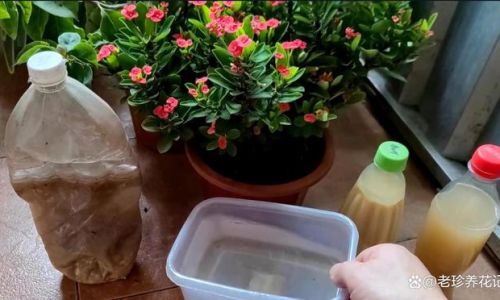Introduction
The practice of repurposing kitchen scraps and beverages for gardening has gained immense popularity as people embrace sustainability and eco-friendly living. Among these, the idea of using leftover tea or tea water to nourish plants has sparked debate. Proponents argue that tea, rich in nutrients like nitrogen and potassium, could serve as a natural fertilizer, while skeptics warn of potential risks, such as soil acidification or harmful chemical buildup. This article delves into the science behind using tea water for plants, exploring its benefits, drawbacks, and best practices to help gardeners make informed decisions.
The Composition of Tea Water: What Makes It Tick?
To understand whether tea water is beneficial for plants, one must first analyze its chemical makeup. Tea leaves contain a variety of compounds, including tannins, caffeine, antioxidants, and minerals like nitrogen, phosphorus, and potassium. When steeped in hot water, these compounds leach into the liquid, creating a brew that varies in concentration depending on brewing time, temperature, and tea type.
- Tannins: These are astringent polyphenols that give tea its bitter taste and dark color. While tannins can inhibit the growth of harmful bacteria, excessive amounts may lower soil pH, making it acidic and potentially harmful to alkaline-loving plants.
- Caffeine: Present in varying quantities depending on the tea type (e.g., black tea has more caffeine than green or herbal tea), caffeine can act as a natural pesticide, deterring insects. However, high concentrations may stunt plant growth or kill beneficial soil microorganisms.
- Nutrients: Tea contains trace amounts of nitrogen (N), phosphorus (P), and potassium (K), the “big three” macronutrients essential for plant health. It also has smaller quantities of magnesium, calcium, and sulfur.
The Allure of Tea Water: Potential Benefits
Advocates of using tea water for plants often highlight several perceived advantages:
- Nutrient Boost: The minimal NPK content in tea could theoretically supplement a plant’s dietary needs, especially for leafy greens or flowering plants that require moderate nitrogen.
- Soil Aeration: Organic matter from tea leaves (if used whole) might improve soil structure, enhancing drainage and root oxygenation.
- Pest Control: Caffeine’s insect-repellent properties could deter pests like aphids or slugs, reducing the need for chemical pesticides.
- Microbial Activity: Some gardeners claim that tea water fosters beneficial bacteria and fungi, creating a healthier rhizosphere.
However, these benefits are not universally applicable and depend heavily on factors like tea type, concentration, and plant species.

The Dark Side: Risks of Using Undiluted Tea Water
Despite the potential upsides, pouring tea water directly onto plants poses significant risks:
- pH Imbalance: Tea is naturally acidic, with a pH ranging from 4.9 to 6.5 (black tea) to 7–8 (herbal teas like chamomile). Repeated application can lower soil pH, harming plants that thrive in neutral to alkaline conditions, such as lavender, succulents, or vegetables like asparagus.
- Caffeine Toxicity: While low caffeine levels may repel pests, excessive amounts can leach into the soil, accumulating over time. Studies suggest that caffeine inhibits seed germination and root growth in sensitive plants like clover and alfalfa.
- Mold and Fungal Growth: Sugar residues from sweetened tea or the organic matter in tea leaves can create a breeding ground for harmful fungi, leading to root rot or mildew.
- Nutrient Imbalance: Tea’s nutrient profile is not balanced for plant needs. Overreliance on tea water may deprive plants of critical elements like calcium or magnesium, causing deficiencies.
- Attracting Pests: The sweet aroma of certain teas (e.g., fruity herbal blends) might lure unwanted visitors like fruit flies or ants.
Do All Teas Behave the Same?
Not all tea waters are created equal. The impact on plants varies by tea type:
- Black Tea: High in tannins and caffeine, black tea water is most likely to acidify soil and harm sensitive plants.
- Green Tea: Lower in caffeine than black tea but still acidic, green tea water may be safer in moderation.
- Herbal Teas: Caffeine-free options like chamomile, peppermint, or rooibos are less risky, though their pH and organic content still warrant caution.
- Compost Tea: Brewed using compost instead of tea leaves, this liquid is a proven soil conditioner rich in beneficial microbes. However, it differs fundamentally from standard tea water.
Best Practices for Using Tea Water Safely
If you insist on repurposing tea water, follow these guidelines to minimize harm:
- Dilute It: Mix one part tea water with three to five parts plain water to reduce acidity and caffeine concentration.
- Avoid Sweetened Tea: Sugar feeds harmful microbes; always use unsweetened brews.
- Test Soil pH Regularly: Use a pH meter to monitor acidity levels, especially for acid-sensitive plants.
- Apply Sparingly: Limit tea water to once a month and focus on acid-loving plants like blueberries, azaleas, or rhododendrons.
- Cool It Down: Hot tea can shock roots; let it reach room temperature before watering.
- Compost Tea Leaves Instead: Mix used tea leaves into compost piles or spread them as mulch, where they decompose slowly and release nutrients without acidifying the soil.
Alternatives to Direct Pouring
For safer repurposing, consider these methods:
- Composting: Tea leaves and bags (if made of natural materials like silk or muslin) are excellent additions to compost bins. They add carbon and nitrogen, balancing the compost’s green-to-brown ratio.
- Vermicomposting: Worms in vermicompost bins thrive on tea leaves, breaking them down into nutrient-rich castings.
- Foliar Sprays: Diluted, cooled tea water can be misted onto plant leaves as a mild fungicide, though efficacy varies by tea type.
- Seed Starting: Weak tea water (1:10 ratio) may aid germination for certain seeds by mimicking natural rainwater chemistry.
Case Studies: Success and Cautionary Tales

- Success Story: A gardener in Oregon reported vibrant growth in her acid-loving hydrangeas after occasionally watering them with diluted black tea. She attributed the results to the tea’s mild acidity, which mimicked the plants’ native soil conditions.
- Cautionary Tale: A novice indoor gardener in New York damaged her spider plants by pouring leftover green tea daily. The plants developed brown leaf tips and stunted growth, later diagnosed as caffeine toxicity and pH imbalance.
Scientific Perspective: What Do Studies Say?
Research on tea water’s impact on plants is limited but revealing:
- A 2018 study in the Journal of Plant Nutrition found that weekly applications of undiluted black tea water reduced tomato plant growth by 23% due to pH stress and caffeine accumulation.
- Conversely, a 2020 University of Florida experiment showed that diluted green tea (1:5 ratio) improved strawberry yield by 15%, likely due to suppressed fungal pathogens.
- Caffeine’s role as a natural herbicide is well-documented; a 2015 Weed Science review confirmed that caffeine solutions inhibit weed seed germination at concentrations above 0.5%.
Myth Busting: Common Misconceptions
- “Tea Water Is a Fertilizer”: While tea contains trace nutrients, it lacks the balanced NPK ratios of commercial fertilizers. Relying on it as a primary nutrient source risks deficiencies.
- “All Plants Love Acidic Soil”: Only a subset of plants (e.g., blueberries, ferns) thrive in acidity; most vegetables and ornamentals prefer neutral to slightly alkaline conditions.
- “Caffeine Harms Only Pests”: While caffeine deters insects, it can also harm earthworms and beneficial nematodes crucial for soil health.
Conclusion: Proceed with Caution
The question “Can I water plants with tea?” lacks a one-size-fits-all answer. While tea water may offer marginal benefits in specific scenarios, its risks—such as pH imbalance, caffeine toxicity, and fungal growth—make it a questionable choice for direct application. Gardeners seeking eco-friendly solutions would be better served by composting tea leaves, using diluted brews sparingly, or opting for proven alternatives like compost tea or vermicompost. As with all gardening practices, moderation, observation, and scientific rigor are key to nurturing thriving plants without unintended consequences. So, the next time you brew a cup of tea, savor the beverage—and let the leaves (or a highly diluted drip) be your garden’s treat, not its main course.





0 comments